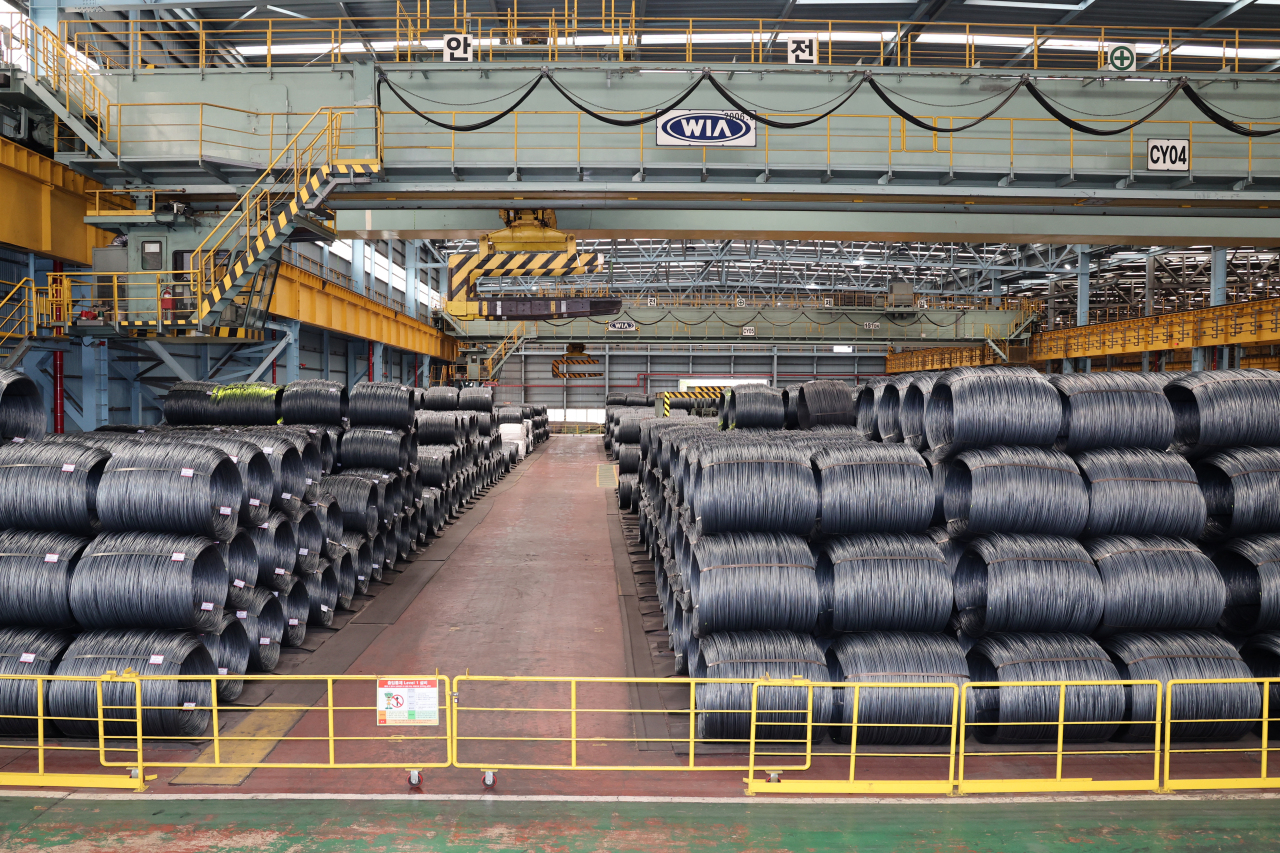 |
At least 110,000 tons of steel products are stacked inside Posco's Pohang factory.(Yonhap) |
The ongoing strike by unionized cargo truckers which began last week appears to have caused at least 1.6 trillion won ($1.2 billion) in losses, the Industry Ministry said on Monday.
Carmakers may have seen some 257 billion won in losses as the sit-in protest paralyzed supply deliveries, preventing 5,400 vehicles from being produced. The estimated losses were calculated by setting the price of a sedan at 47 million won.
The steel industry has estimated its losses at 697 billion won for the last five working days between June 7 and 12, as steelmakers were unable to deliver 450,000 metric tons of steel products.
Estimated losses in the petrochemical and cement sectors are 500 billion won and 75.2 billion won, respectively.
On the same day, the country’s largest steelmaker Posco said it has temporarily suspended the operation of five factories in Pohang, the firm said Monday.
According to Posco, five factories producing wire rods and cold-rolled steel that are used for producing electronic appliances have stopped their operations as of 7 a.m. Monday, due to an overload of products inside the factory.
At least 110,000 tons of steel products are currently stacked in both the factory as well as on the roads and surrounding area, the company said.
Suspending operations in five factories means production losses of some 12,000 tons of wire rod and cold-rolled steel products per day, according to Posco.
It added that if the strike doesn’t stop in a few days, other Posco factories producing hot-rolled steel and steel plate will inevitably cease production, further affecting the operation of its blast furnace.
Besides Posco, the country’s largest automaker Hyundai Motor Group has seen severe losses from the supply disruption caused by the strike from cargo truckers who refuse to deliver products.
According to the industry, the carmaker’s Ulsan factory, where flagship models like Ioniq 5 and Palisade are built, saw its total number of cars produced dwindle to 1,800 units, less than a third of its usual daily output of 5,000 to 6,000 units.
“Our production rate has already fallen below 50 percent due to the auto chip supply shortages. The latest strike is creating further problems for the automotive manufacturing industry, as delays in auto part deliveries are causing companies to see significant losses as well increased consumer complaints about delayed deliveries,” said an industry insider.
The market is watching out for a possible domino effect, as others may be impacted if supply disruptions continue.
On Monday, Hyundai Motor, Kia, GM Korea, Renault Korea, SsangYong Motor and Korea Automobile Manufacturers Association formed a task force to monitor the market situation and operate a monitoring system of auto part stock on a daily basis.
By Kim Da-sol (
ddd@heraldcorp.com)






![[Herald Interview] 'Trump will use tariffs as first line of defense for American manufacturing'](http://res.heraldm.com/phpwas/restmb_idxmake.php?idx=644&simg=/content/image/2024/11/26/20241126050017_0.jpg)

![[Exclusive] Hyundai Mobis eyes closer ties with BYD](http://res.heraldm.com/phpwas/restmb_idxmake.php?idx=644&simg=/content/image/2024/11/25/20241125050044_0.jpg)